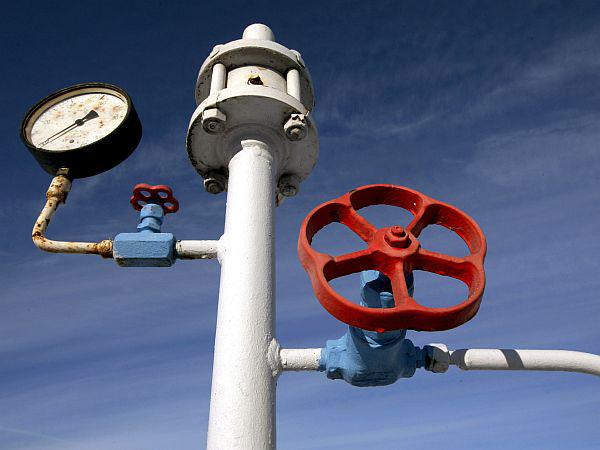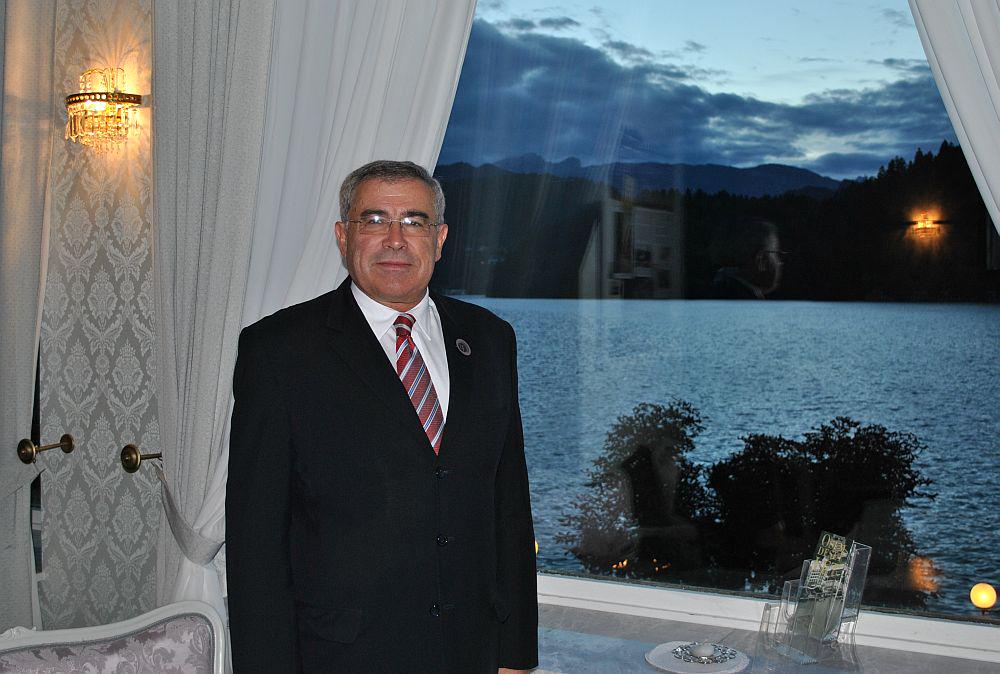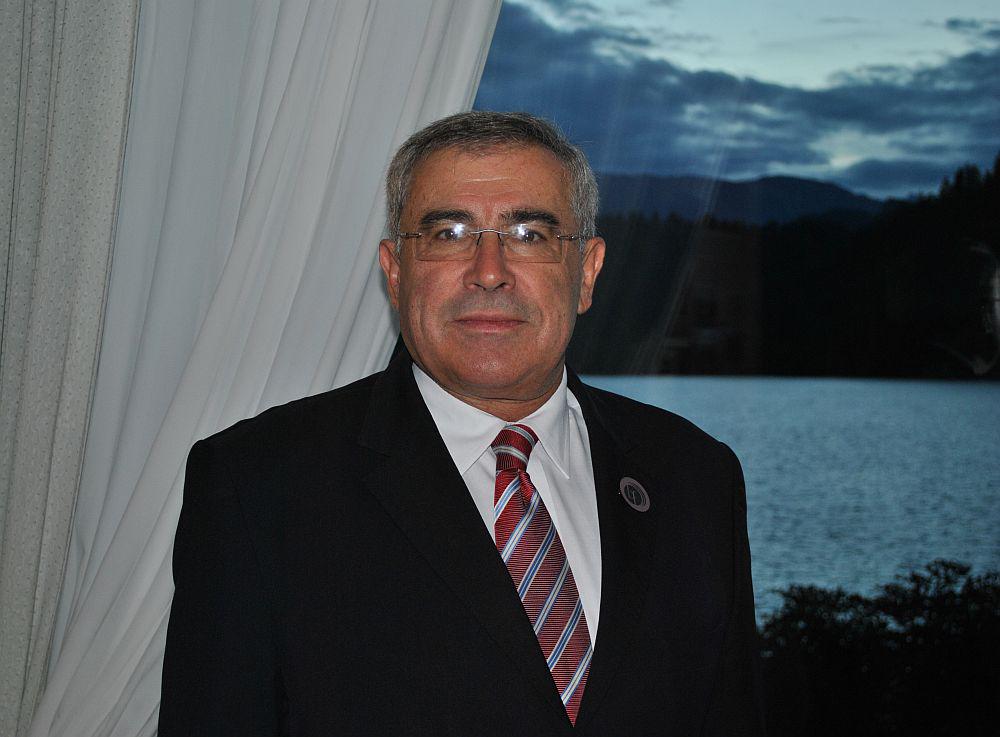
In the long run Russia is strengthening its financial power with energy and fossil fuel.

Sven Alkalaj is a Bosnian diplomat with many years of experience. He was the Bosnian ambassador to the US, Bosnian ambassador to Belgium, and ambassador to NATO. Between 2007 and 2012 he was the Foreign Minister of Bosnia and Hercegovina, after which the UN Secretary-General Ban Ki-Moon appointed him as the Executive Secretary of the UN Economic Commission for Europe (UNECE), and also as one of his deputy secretaries.
He took part at the Bled Strategic Forum in that role, to confer the message of Ban Ki-Moon to the participants of the forum which he highly respects. MMC talked to Mr. Alkalaj a day before the official start of the forum. We touched on Syria and UN’s role in the international community, as well as on Russia and the future of Bosnia and Hercegovina in the European Union.
Considering that you are the Executive Secretary of the UN Economic Commission for Europe, in your field of work you surely come across the difficulties that countries face because of the economic crisis. However in all the reports about the crisis by the world’s media the UN isn’t mentioned very often. Why is that so? How come the biggest world organization isn’t taking a more active role in solving the crisis?
I think that the Brussels and the European Commission are undertaking enough economic measures and activities in all the member states of the European Union for them to get out of the crisis. I think we can see the light at the end of the tunnel. And why aren’t the United Nations more active in solving the crisis? We have a lot of areas and regions in the world with countries in much more difficult economic situations. They are at a lower stage of development and can’t even meet the basic needs of their people. They have no drinking water, no electricity, no communication networks or infrastructure. At the UN in the framework of our development goals we try to draw attention to these matters and help those countries to at least come close to those that are more developed.
How can the UNECE, which brings together 56 countries, help countries overcome the crisis? In your speeches you often mention the need for an environmentally and socially sustainable economic system. How can that be achieved?
Through legislation we try introduce those norms and practices which have already been adopted in other countries, and which have proven to be the best. Through direct work on the field, workshops, communication and cooperation with state institutions we try to incorporate the best practices into legislation and raise the level of the state institutions so they can effectively realize set goals. Through that kind of work we try to raise the level in all countries. As you said our organization encompasses 56 countries on three continents. North America, Europe with Russia, and countries from the former Soviet Union. This region belongs to the family of middle developed countries, as it includes both developing countries as well as countries already highly developed. And that difference enables us to implement the best knowledge and practice in those developing countries and try shorten their long journey towards a more developed society.
As we earlier mentioned the UN Secretary General we can’t avoid touching on the current situation in Syria. Regarding the fact, that you yourself come from a country which also experienced tragedies which could have been avoided with a timely international intervention, how do you see the situation in Syria where something similar is happening right now? The Security Council is blocked and as it seems the big world powers won’t come to any agreement on attacking the Syrian regime. How can the international community allow for such a tragedy to happen again?
Here I can tell you my personal opinion for I witnessed everything that happened in Bosnia and Hercegovina, also as an ambassador to the US. The UN system, with the possibility of imposing a veto and other mechanisms in the Security Council, enables such things to happen and we see innocent people dying. Because of the geopolitical positions of certain countries we are not able to act. Similar to the genocide in Srebrenica, we now have the use of chemical weapons in Syria. The world will not be able to just close its eyes and will have to react in some way. There is a wish in this world to make this right, but what is the worst is that there are already 100.000 victims in Syria. Was it necessary for 250.000 people to die in Bosnia and Hercegovina for things to change? I would like to see the world learn something from Bosnia and Hercegovina, but unfortunately due to certain geopolitical preferences, such things are still happening and innocent civilians are dying.
Do you think the UN organization in its current form is still capable of reacting on time and with credibility to what’s happening in the world? It has happened more than once for a country to go around the Security Council, despite opposition from the UN. So the question remains, does the world need such an organization?
Talks on reforming the Security Council have been going on for years. It has shown that the composition and number of members has to be changed. I personally have also taken part in these talks. However until there exists the right to impose a veto, nothing can be done. We can’t even abolish the right to a veto without the consent of all members. So at the moment, we have what we have. Maybe the number of members will increase from 15 to 20, or even more. But at the moment with all means necessary we have to try push for real solutions though the Security Council. I think the UN is still the only forum where all the countries of the world participate. Of course there is a question on how effective it is because of its grandness and high number of members. But we do have successful examples as well, as the case in South Sudan and the crisis situation in Africa, where the UN had credibility. As I said, the UN system isn’t perfect, it should be improved, but at the moment it’s still the best we have.
In the frameworks of the Bled Strategic Forum (BSF) you took part in the panel on Russia’s role in the world. Despite the financial crisis, Russia is developing and growing. Where do you see its future role, how is it developing, will it focus on its role in Central Asia or will it become an even more important global power?
The Russian Federation will lean towards becoming a global world power. It is already an important partner and since the events in the 90s, after the fall of the Soviet Union and difficult economic conditions, it has managed to get back on its feet. It managed mainly by taking advantage of its energy resources which have played a key role in the development of the Russian Federation and its economy. In the long run Russia is strengthening its financial power with energy and fossil fuel. That’s also written down in their foreign policy strategy, which Russia put together under President Vladimir Putin.
Russia is also one of the main energy suppliers for the European market. Are the new gas pipelines crisscrossing all over Europe also a geopolitical instrument in Russia’s hands? How, and will Russia use this power it has more and more?
Yes, for sure. Europe imports almost three quarters of its fossil fuels from Russia. That’s why it’s important for Russia to also have a strong presence in Central Asia. Central Asia has one of the biggest deposits of gas in oil. Russia has long-term agreements with countries like Kazakhstan, Turkmenistan and Uzbekistan for the purchase of gas for its own needs and transporting it through its pipelines. At the same time its sells Europe its own gas at higher prices. What’s dangerous here though is that China is also in need of more gas and has therefore also started investing in the this field by building pipelines, railways and infrastructure in the east of the country along the borders with Uzbekistan and Turkmenistan. China’s energy needs could reduce Russia’s dominant position in Central Asia and enhance China’s position. Here we can ask the question, where’s the European Union in all this? The European Union does not have a strong influence on Central Asia. The EU can only be Russia’s strategic partner because it’s in its interest to get cheap gas on European soil. That is why Europe will still for many years be energy-dependent on Russia.
Could it come to a conflict at some point between Russia and China because of gas?
I don’t believe so. Russia is a big and vast country with a number of resource deposits which still haven’t been used. Russia is not even in a hurry to open these new deposits of oil and gas, as it’s currently taking good advantage of the resources in Central Asia. Those deposits are also situated in environmentally more friendly surroundings than the ones in Siberia, which also demand a more developed technology for extracting oil and gas – a technology which Russia doesn’t have at the moment. So I think it won’t come to a conflict. But there could be more tension in Central Asia, as there already is some between Uzbekistan in Tajikistan, Turkmenistan in mostly neutral, and then we also have Kirgizstan and of course Kazakhstan, another big country which cooperates a lot and is an important partner of Russia. At the moment a customs union is in the process of being formed in Central Asia. It’s supposed to take effect on the 1st of January 2015. Belarus, Kazakhstan and Russia are creating something similar to a European Union, a Eurasian economic union, which might even grow into something bigger than the customs union. Our commission also helped them in that. However strengthening this economic area will definitely help Russia’s position in that part of the world to remain strong in years to come.
As the main theme of the Bled forum was "A changing Europe in a changing world", how do you see the role of Bosnia and Hercegovina in the European Union. The EU is growing tired of the enlargement process, everybody wants to take a break from it, and so Balkan countries will still have to wait to enter the EU. When do you think Bosnia and Hercegovina will get closer to joining the EU? Do you think that after more years of waiting, joining the EU will remain to be one of its key foreign policy priorities?
I was the Foreign Minister of Bosnia and Hercegovina for five years. In that time our goal was to sign the EU accession treaty. We also adapted many elements necessary to take the path towards the European Union. It’s hard to foresee the dynamics with which Bosnia and Hercegovnia will continue on this path due to the political instability in the country, in which governing partners are not able to agree on concrete steps forward. If we look at the neighbouring Montenegro, Serbia and Macedonia, they did make concrete steps forward. In the meantime Bosnia remains to be the last wagon in the train of countries wanting to join the EU. That’s why the first task has to be settling the political situation in Bosnia in Hercegovina. Whichever parties become governing partners after next year’s elections, they will have to find a way to agree on the priorities of the EU path. These priorities then have to become the priorities of the whole of Bosnia and Hercegovina and not just of individuals or certain nations. From that moment on, when the whole country embarks on a journey towards the EU, then we will progress. Individual entities or regions cannot enter the EU alone. Only the whole country can join the European Union. On the other hand I see the European Commission and Enlargement Commissioner Stefan Fule as very open and wishing to find ways to convince the political leadership to find a common language for all open issues. However the closer we are to elections, political leaders start taking over old practices putting the country’s ethnic entities into different columns, closing them off from one another, making them fear the others, and that is why there is no progress. If the new government in 2014 finds a common language, I think that with a lot of effort, Bosnia and Hercegovina could become a member of the European Union in ten years time.
Upon Croatia’s entry to the EU it was believed by many that Croatia had the most difficult negotiation process so far. Do you think it will be even more difficult for the other Balkan countries?
Even now the union is a group of 28 countries which function on the basis of a consensus and agreement. Each individual country must be prepared to enter this club with the least amount of difficulty, and that’s why I think that all future negotiations will certainly be harder. The European Union has learnt a lot through the enlargement process, as we have Bulgaria, Romania and other countries where a number of processes are not yet finalized. The EU will want to avoid these kinds of experiences, difficulties and problems which could hinder the functioning of the European Union.
In the long run Russia is strengthening its financial power with energy and fossil fuel.


































































